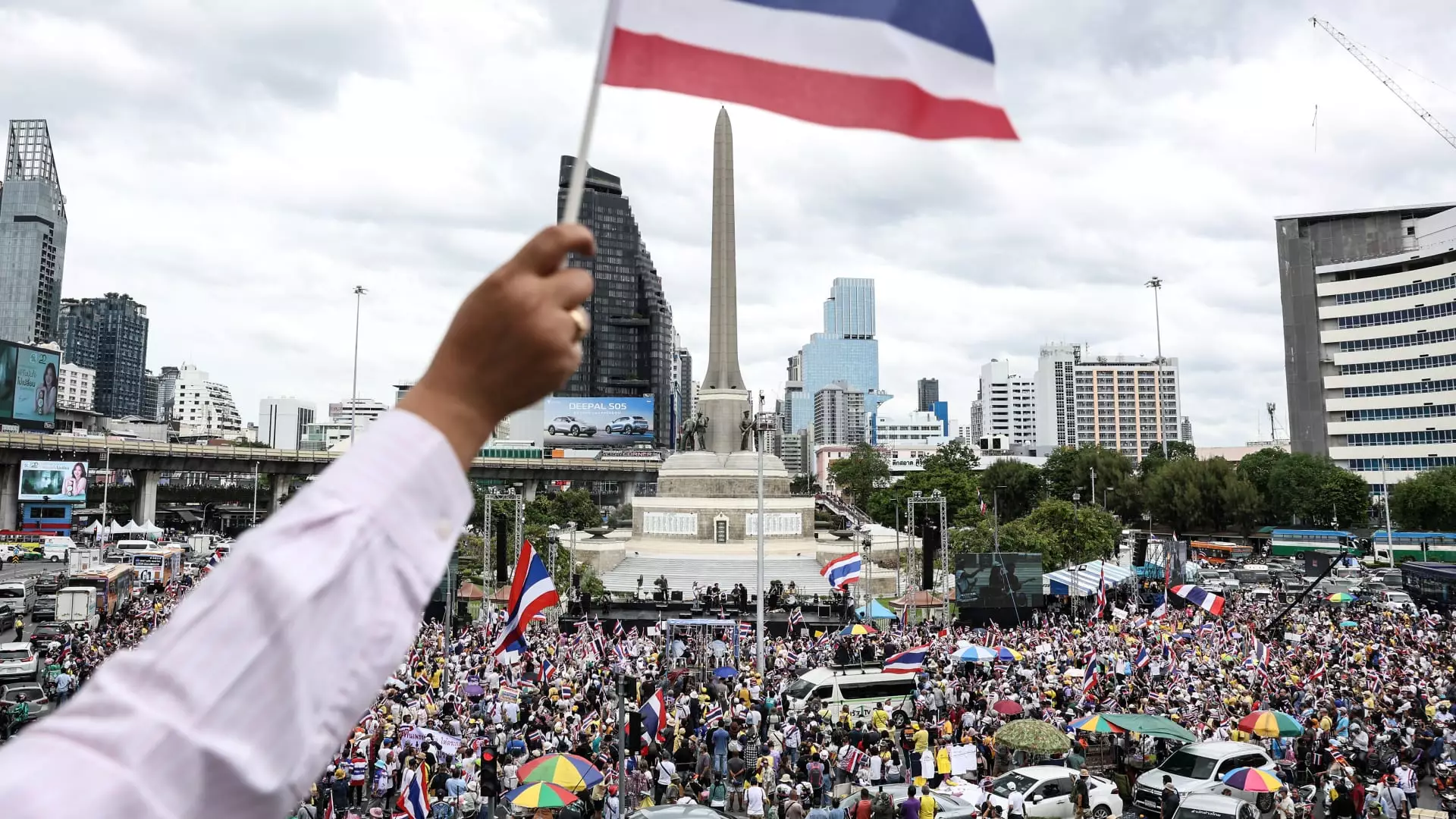Thailand is currently caught in a political maelstrom that feels both alarmingly familiar yet ominously intensified. Hundreds of protesters have converged on Bangkok’s Victory Monument, demanding the resignation of Prime Minister Paetongtarn Shinawatra. This eruption of discontent is not a spontaneous outburst—it’s a calculated show of force by nationalist groups long opposed to the Shinawatra political dynasty, which has dominated Thai politics for decades. These protests, while ostensibly centered on a border dispute with Cambodia, reveal deeper fractures in Thailand’s political fabric—fractures forged by mistrust, competing sovereignties, and an assertive military.
Paetongtarn, at just 38 years old, inherits a government teetering precariously on the edge, struggling to hold together a coalition fractured by betrayals and defections. The recent walkout of the Bhumjaithai Party, a key partner, highlights the volatile nature of alliances in Thai politics and how ethnic nationalism can trump pragmatic governance. The volatile mood is made worse by a leaked phone call where Paetongtarn seemingly criticized a revered Thai army commander while attempting to smooth tensions with Cambodia—a diplomatic misstep magnified by Thailand’s intricate military-political hierarchy.
Military Power and Judicial Pressure: Shadows Over Democracy
Thailand’s political drama cannot be untangled from the pervasive influence of its military and judiciary. The protest movement, organized by the United Force of the Land, is not merely a public demonstration but a signal to powerful entrenched interests that want to remind the civilian government of their limits. Thailand’s history of coups and judicial interventions reveals a pattern where public dissent becomes a pretext for extra-parliamentary action.
The current no confidence vote looming in parliament is, therefore, more than a legislative obstacle for Paetongtarn—it’s a critical test of her government’s ability to resist backdoor pressure and military intimidation. The involvement of the Constitutional Court and anti-graft agencies in investigating the prime minister over the phone call leak underscores an uncomfortable reality: legal bodies in Thailand often act as political weapons. This undermines democratic norms and raises questions about the separation of powers in the country. An independent judiciary should uphold the constitution, not serve as an extension of political vendettas or military interests.
Diplomatic Ruptures: The Cambodian Issue as a Political Weapon
What makes this political crisis uniquely perilous is how a bilateral border dispute has been weaponized internally. The phone conversation between Paetongtarn and Cambodia’s former premier Hun Sen, once an ally to the Shinawatras, has turned into a political powder keg. Hun Sen’s unprecedented attack on the Thai government reveals how external actors can fuel rather than calm domestic instability.
Paetongtarn’s efforts to engage diplomatically with Cambodia are reasonable but dangerously hamstrung in a domestic environment where any sign of conceding ground is viewed as betrayal. The nationalist rhetoric that emerged from Bhumjaithai’s withdrawal of support accuses her of compromising Thai sovereignty—a charge that resonates deeply in a country where strongmen and military elites define patriotism.
Why Thailand’s Crisis Should Worry Us Beyond Its Borders
From a center-liberal perspective, Thailand’s situation is a sobering reminder of the fragility of democratic institutions in the face of nationalist fervor and military dominance. The challenge is balancing respect for national sovereignty with the urgent need to protect democratic pluralism and civilian rule. Paetongtarn’s claim that she won’t retaliate against protests is commendable yet insufficient if the military and judiciary continue to operate with impunity.
More than just a localized spat, Thailand’s turmoil highlights what happens when populist nationalism converges with authoritarian power structures, choking the life out of young democracies. The international community and regional neighbors should watch carefully: when diplomacy is hollowed out by domestic paranoia and fragile coalitions, instability only exacerbates, putting millions of lives and economic recovery at risk.


Leave a Reply